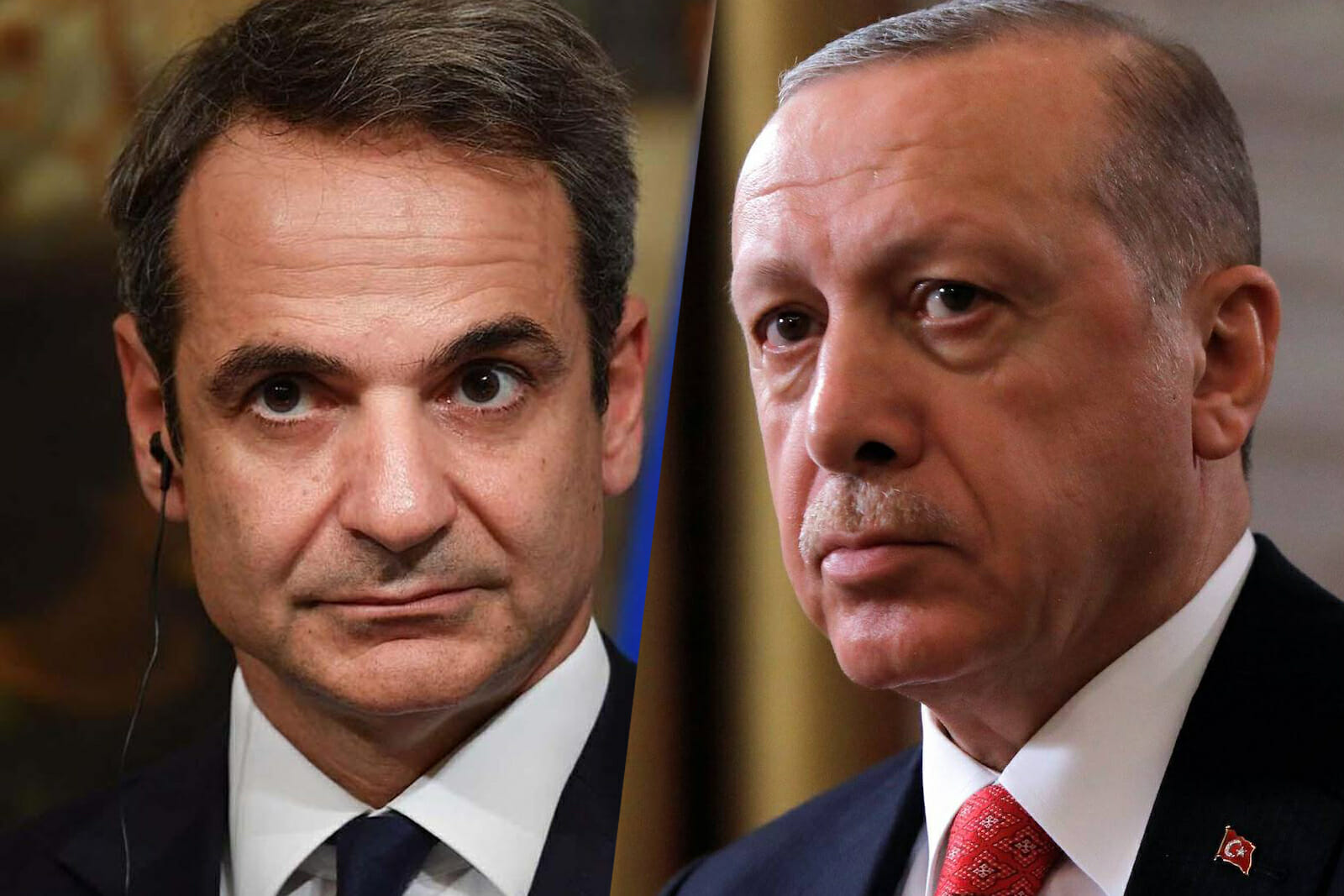
Greece is Shifting its Foreign Policy to Counter Turkey in the Eastern Mediterranean
Competition over natural gas in the Eastern Mediterranean looks set to re-ignite old rivalries in the region. Turkey is seeking to disrupt the €6-7 billion EastMed agreement between Greece, Cyprus and Israel, which would enable the transportation of natural gas to Europe via a pipeline from the Israeli Leviathan and Cypriot Aphrodite gas fields. The pipeline is especially important for hopes in Greece of rejuvenating its long-suffering economy.
In November last year, President Recep Tayyip Erdoğan signed a memorandum of understanding with the Libyan Government of National Accord (GNA) in Tripoli, outlining maritime boundaries between Turkey and Libya. Turkish strategists are betting that the new boundaries will prevent Greece, Cyprus, and Israel from constructing the pipeline without Turkish consent.
The Turkey-Libya deal has made officials in Greece nervous for several reasons. The aforementioned threat to the EastMed pipeline is chief amongst them but the new maritime boundaries are also in extremely close proximity to the Greek island of Crete. The probability of war is low, due to the high costs which would be incurred on both sides, yet a hot incident remains entirely possible. Turkish military jets have frequently violated Greek airspace and officials in Ankara have questioned the treaties which underpin the present Greek-Turkish borders on numerous occasions.
Greece is essentially a status quo power and wants to maintain the present maritime and territorial boundaries in the region. Conversely, as Turkey increasingly flexes its diplomatic and military might, the leadership in Ankara seems ever keener to challenge the status quo, especially with drilling rights now at stake. Consequently, the decades-old Cyprus and Aegean disputes run the risk of escalating tensions further, as both sides compete to safeguard their interests.
In order to assert its voice in the region, Greece will have to rely on savvy diplomacy, especially to overcome the disparity in power it faces from Turkey. In January, Greece’s prime minister met with President Donald Trump at the White House. Kyriakos Mitsotakis seems to be banking on the idea that he can build a strong partnership with the U.S.
For decades, American policymakers have been wary not to alienate Turkey. During the Cold War, with its position between Europe and Asia and naval access to both the Black Sea and the Mediterranean, Turkey was seen as a crucial partner that could act as a buffer against the Soviet Union.
However, Turkey’s increasingly pro-Russian sentiment and aspirations for greater regional dominance, partially at the expense of the U.S., may begin to alter long-held opinions. The decision to buy the Russian-made S400 missile system and Erdoğan’s more autocratic preferences have made Turkey a less dependable ally within the NATO framework. This may give Greece greater strategic space to secure U.S. backing and become a more prominent regional diplomatic and security player.
Already, there has been some traction with Greek-U.S. cooperation. In late January, policymakers from both countries updated the Mutual Defense Cooperation Agreement (MDCA), which grants the U.S. access to a number of Greek military facilities. From these facilities, U.S. forces can carry out training, complete logistical tasks and deploy quick reaction forces (QRFs) to respond to emergencies.
In addition to the MDCA, Mitsotakis made a controversial decision to support Washington’s allies in Saudi Arabia and provide them with an American-made Patriot Missile system. The prime minister also backed Trump’s decision to use a drone strike in the killing of Iranian General Qassem Soleimani. The increasingly vigorous show of support from Greece towards U.S. foreign policy is likely intended to demonstrate the country’s credentials as a dependable ally. Greek strategists will, in turn, hope that the U.S. supports Greece’s interests in the Eastern Mediterranean.
A recent report by the U.S.-based think tank (JINSA) advocating for greater Greek and American cooperation, outlined what a closer partnership in the future could look like. Among the recommendations was the suggestion that the U.S. extend further foreign military financing (FMF) to Greece. Last year, Greece received $3 million in FMF funds from the U.S., but a greater contribution would allow Greece to upgrade its military with more American military assets.
Greece has not limited its diplomatic outreach to just the U.S. During the Alexander the Great joint-military exercise held in February, French forces joined Greek and American troops to simulate the recapture of a Greek island. France further cemented its military presence in the Eastern Mediterranean when it deployed the Charles de Gaulle aircraft carrier to dissuade Turkish drilling in the Cypriot exclusive economic zone (EEZ). France is keen to prevent Turkish infringements in the area which may impede the French firm Total S.A.’s from carrying out its gas exploration activities, which have been conducted under license from the Cypriot government.
Within the EU, France has been the most outspoken critic of Turkish maneuvers in the Eastern Mediterranean. Patrick Maisonnave, the French Ambassador to Greece, condemned Turkey’s Libyan deal and expressed that France is “very interested in developing relations with Greece, especially in defense.”
Greece will need to further leverage EU support to protect its interests. So far, the EU has called on Turkey to cease ‘illegal’ drilling in the Cypriot EEZ and has adopted a framework of sanctions it may impose if Turkish vessels continue to operate in the area. It remains to be seen how far Brussels is willing to go in challenging Turkey.
Ultimately, Greek policymakers are waking up to the fact that they will have to play a smarter geostrategic game. If Athens fails to forge the necessary diplomatic relationships at both a regional level and with the bigger players further afield, Greece will find itself increasingly powerless to defend its interests.

